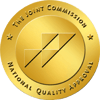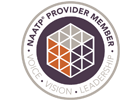As our summer season in Arizona starts to heat up and July approaches, it’s a great time to pause for a moment and reflect on the concept of independence. Our minds can be filled with images of flags wavering, fireworks illuminating the sky, family gatherings, bbq picnics, and large celebrations. This July, let’s look at the powerful connection between sobriety and freedom, and discover how embracing a life free from substance abuse can lead to genuine independence.

Breaking free from the chains of addiction can aid us in Rediscovering our true Independence:
There seems to be an illusion within the world of substance abuse. In the pursuit of independence, many individuals turn to substances as a means of escape or a coping mechanism. However, the truth is that substance abuse can create a vicious cycle of dependence, stripping us of our personal freedom.
Sobriety offers a genuine pathway to reclaiming our own personal freedom. By breaking free from the chains of addiction, we have an opportunity to gain control over our lives enabling us to make conscious choices that align with our core values and aspirations.
Liberating the Mind and Body helps us gain mental clarity and emotional freedom:
Substance abuse often clouds our judgment, impairs cognitive function, and creates emotional stress and instability. Sobriety empowers us to regain mental clarity, make rational decisions, so that we can experience emotional well-being.
Drug and alcohol abuse takes a toll on our physical health, impacting vital organs and affecting our overall wellbeing. When we embrace sobriety, it allows us to prioritize self-care, leading us on the pathway to improved physical, mental, and emotional health. It also helps to increase our energy levels giving us a renewed sense of vitality.
Building Strong Support Systems and Breaking the Chains of Isolation:
Addiction can be an isolating experience, distancing individuals from friends, family, and support networks. Sobriety paves the way for meaningful connections and nurturing relationships, as individuals rebuild trust, find support groups, and surround themselves with people who share their commitment to sobriety.
Community and Empowerment:
Engaging with others on the journey to recovery fosters a sense of belonging and empowerment. Through support groups, therapy, and mentoring, individuals discover that they are not alone, and their independence is strengthened by the collective strength and wisdom of a recovery community.
Setting and Achieving Personal Goals and Unlocking the Potential Within You:
Sobriety opens the door to self-discovery and the realization of personal goals. With a clear mind and renewed motivation, individuals can set meaningful objectives and work towards fulfilling their dreams, whether it's pursuing a new career, learning new hobbies, or nurturing relationships.
Embracing New Possibilities:
Without the constraints of substance abuse, individuals can explore uncharted territories, push boundaries, and welcome new experiences. Sobriety allows for personal growth, expands horizons, and unlocks a world of possibilities previously obscured by addiction.
Conclusion:
This year, as the world celebrates independence day in many different ways, let's turn our focus inward to the profound connection between sobriety and freedom. By reclaiming our independence from substance abuse, we break free from the chains that bind us, fostering mental clarity, physical health, and strong support networks. With newfound freedom, we can set and achieve personal goals, unlocking our full potential and embracing the endless possibilities that await us on the path to sobriety. So, this July, let us choose to reclaim our independence and embark on a journey towards a life of sobriety, empowerment, and true freedom.
https://www.sobermansestate.com
Soberman's Estate is a residential men's addiction treatment center that provides discreet, individualized, sophisticated recovery and wellness services for adult men that want to recover from substance use disorders, and or other behavioral issues such as trauma, anxiety, depression, stress, or other addictions.





